第156章 CHAPTER XXII.(4)
Although I take a great interest in wild animals, I confess to have an objection to sleep in the Zoological Gardens should all the wild beasts be turned loose. I do not believe that even the Secretary of that learned Society would volunteer to sleep with the lions; but as the leopards at the Khartoum Consulate constantly broke their chains, and attacked the dogs and a cow, and as the hyaena occasionally got loose, and the wild boars destroyed their mud wall, and nearly killed one of my Tokrooris during the night, by carving him like a scored leg of pork with their tusks, the fact of sleeping in the open air in the verandah, with the simple protection of a mosquito-netting, was full of pleasant excitement, and was a piquante entertainment that prevented a reaction of ennui after twelve months passed in constant watchfulness. The shield over the Consulate door, with the lion and the unicorn, was but a sign of the life within; as the grand picture outside the showman's wagon may exemplify the nature of his exhibition. I enjoyed myself extremely with these creatures, especially when the ostriches invited themselves to tea, and swallowed our slices of water-melons and the greater portion of the bread from the table a few moments before we were seated. These birds appeared to enjoy life amazingly; one kind of food was as sweet as another; they attacked a basket of white porcelain beads that had been returned by Mr. Petherick's men, and swallowed them in great numbers in mistake for dhurra, until they were driven off; they were the scavengers of the courtyard, that consumed the dung of the camels and horses, together with all other impurities.
For some months we resided at Khartoum, as it was necessary to make extensive preparations for the White Nile expedition, and to await the arrival of the north wind, which would enable us to start early in December. Although the north and south winds blow alternately for six months, and the former commences in October, it does not extend many degrees southward until the beginning of December. This is a great drawback to White Nile exploration, as when near the north side of the equator, the dry season commences in November, and closes in February; thus, the departure from Khartoum should take place by a steamer in the latter part of September; that would enable the traveller to leave Gondokoro, lat. N. 4 degrees 54 minutes, shortly before November; he would then secure three months of favourable weather for an advance inland.
Having promised Mek Nimmur that I would lay his proposals for peace before the Governor-General of the Soudan, I called upon Moosa Pasha at the public divan, and delivered the message; but he would not listen to any intercession, as he assured me that Mek Nimmur was incorrigible, and there would be no real peace until his death, which would be very speedy should he chance to fall into his hands. He expressed great surprise at our having escaped from his territory, and he declared his intention of attacking him after he should have given the Abyssinians a lesson, for whom he was preparing an expedition in reply to an insolent letter that he had received from King Theodore. The King of Abyssinia had written to him upon a question of frontier. The substance of the document was a declaration that the Egyptians had no right to Khartoum, and that the natural boundary of Abyssinia was the junction of the Blue and White Niles as far north as Shendy (Mek Nimmur's original country); and from that point, in a direct line, to the Atbara; but that, as the desert afforded no landmark, he should send his people to dig a ditch from the Nile to the Atbara, and he requested that the Egyptians would keep upon the north border. Moosa Pasha declared that the king was mad, and that, were it not for the protection given to Abyssinia by the English, the Egyptians would have eaten it up long ago, but that the Christian powers would certainly interfere should they attempt to annex the country.
The Egyptians seldom had less than twenty thousand troops in the Soudan provinces; the principal stations were Khartoum, Cassala, and Dongola. Cassala was close to the Abyssinian frontier, and within from fifteen to twenty days' march of Souakim, on the Red Sea, to which reinforcements could be despatched in five days from Cairo. Khartoum had the advantage of the Blue Nile, that was navigable for steamers and sailing vessels as far south as Fazogle, from which spot, as well as from Gallabat, Abyssinia could be invaded; while swarms of Arabs, including the celebrated Hamrans, the Beni Amer, Hallongas, Hadendowas, Shookeriahs, and Dabainas, could be slipped like greyhounds across the frontier.
Abyssinia is entirely at the mercy of Egypt.
Moosa Pasha subsequently started with several thousand men to drive the Abyssinians from Gallabat, which position they had occupied in force with the avowed intention of marching upon Khartoum; but upon the approach of the Egyptians they fell back rapidly across the mountains, without a sign of showing fight.
The Egyptians would not follow them, as they feared the intervention of the European powers.